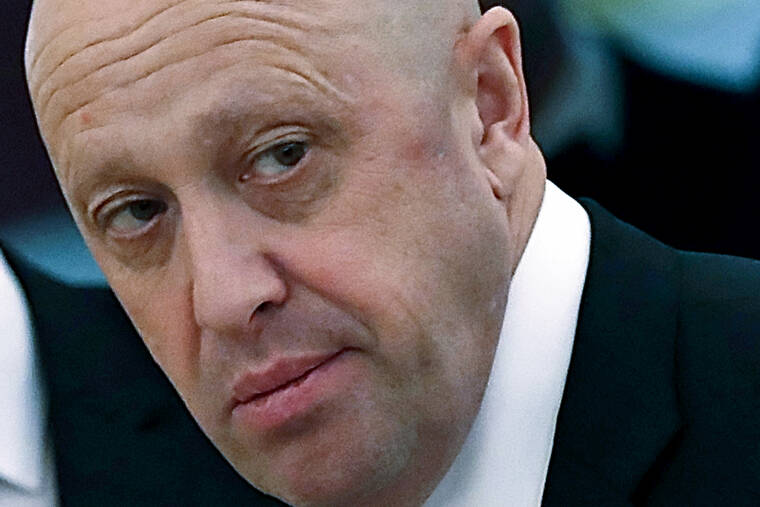White House: Russia’s Wagner received arms from North Korea
WASHINGTON — The White House said Thursday that the Wagner Group, a private Russian military company, has taken delivery of an arms shipment from North Korea to help bolster its forces as it fights side-by-side with Russian troops in Ukraine.
White House National Security Council spokesman John Kirby said U.S. intelligence officials determined that North Korea completed an initial arms shipment that included rockets and missiles last month.
“We assess that the amount of material delivered to Wagner will not change battlefield dynamics in Ukraine,” Kirby said. “But we’re certainly concerned that North Korea is planning to deliver more military equipment.”
The White House has expressed alarm about Wagner’s growing involvement in the war as it has been particularly active in the eastern Donbas region. Kirby said in certain instances Russian military officials have even been “subordinate to Wagner’s command.”
Biden administration officials said with the arms sales to the private military group North Korea is violating U.N. sanctions that ban Pyongyang from importing or exporting weapons.
Ambassador Linda Thomas-Greenfield, the U.S. envoy to the United Nations, called it “despicable” that Russia, a permanent veto-wielding member of the U.N. Security Council, which imposed the sanctions, is now using weapons procured from North Korea and Iran “to pursue its war of aggression against Ukraine.”
Kirby said the U.S. now assesses that Wagner has some 50,000 personnel fighting in Ukraine, including 10,000 contractors and 40,000 convicts that the company has recruited from prisons.
The U.S. assesses that Wagner, owned by Yevgeny Prigozhin, an ally of Russian President Vladimir Putin, is spending about $100 million a month in the fight, Kirby said.
Wagner Group mercenaries have also been accused by Western countries and UN experts of numerous human rights abuses throughout Africa, including in the Central African Republic, Libya and Mali. Earlier this month, Secretary of State Antony Blinken announced he had de signated the Wagner Group as an “entity of particular concern” for its activities in the Central African Republic.
Wagner has faced U.S. sanctions since 2017. The Commerce Department on Wednesday unveiled new export restrictions targeting Wagner in a bid to further restrict its access to technology and supplies.
The White House has repeatedly sought to spotlight intelligence findings that show Russia — struggling to maintain a steady supply of arms for its war in Ukraine and pinched by sanctions that are limiting access to key components for weapons manufacturing — has limited options to help it resupply weapons.
Russia has also turned to Iran to provide drones to use against Ukraine, and the Biden administration has expressed concern that Russia may seek to acquire additional advanced conventional weapons from Iran. The White House has previously said that Moscow turn to North Korea for artillery.
The British government also condemned Russia for Wagner arm’s purchase.
“The fact that President Putin is turning to North Korea for help is a sign of Russia’s desperation and isolation,” Foreign Secretary James Cleverly said in a statement. “We will work with our partners to ensure that North Korea pays a high price for supporting Russia’s illegal war in Ukraine.”
North Korea has sought to strengthen relations with Russia as much of Europe and the West has pulled away from Moscow.
Tensions on the Korean Peninsula have heightened because of concerns about North Korea’s nuclear and ballistic missile programs. The North has carried out a series of weapons demonstrations, while the U.S. and South Korea held stepped up joint defense exercises.
Thomas-Greenfield said Wagner’s purchase “contributes to instability on the Korean Peninsula by giving the DPRK funds it can use to further develop its prohibited weapons of mass destruction and ballistic missile programs.”
“Russia is not only defending the DPRK as it engages in unlawful and threatening behavior, Russia is now a partner to such behavior,” Thomas-Greenfield added.
——
Lederer reported from the United Nations.

